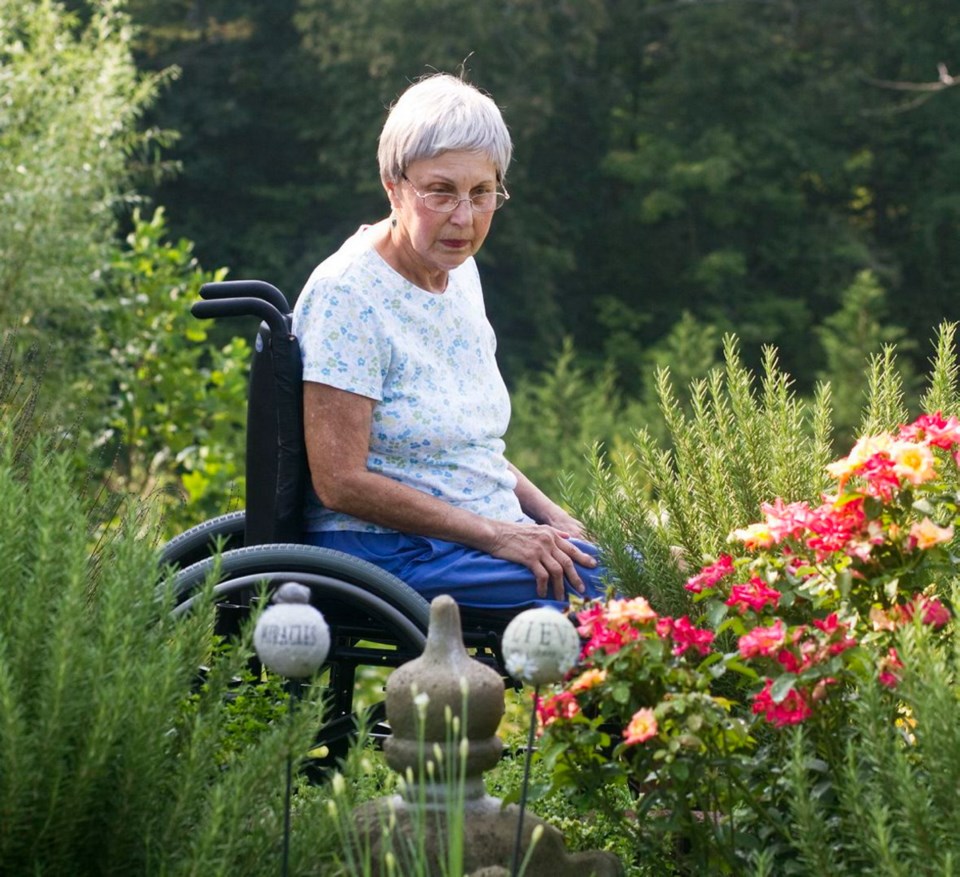Low-income seniors often face hardships because they are unable to afford health essentials such as hearing aids, glasses, dental care, wheelchairs and walkers, says B.C.’s independent seniors’ advocate.
Isobel Mackenzie says while no province underwrites everything, B.C. offers no subsidies or rebates for necessary aids, leading to isolation, immobility and premature admission to provincially funded long-term care residences, where at least basic wheelchairs must be provided.
B.C. provides vision and dental care and mobility aids to very low-income seniors only if they had received specific kinds of social-assistance payments when they turned 65. Those seniors keep their benefits, but Mackenzie said she finds it “disturbing” that such a large number do not qualify.
“If you are simply a poor senior, who wasn’t on income assistance … there is nothing for you to help you pay for your glasses or your hearing aids or your teeth or your walker or your wheelchair,” she said. “Many of them are going without, and many of them are just placed in residential care. If you end up in long-term care and you need a wheelchair, a wheelchair will be provided.”
One of Mackenzie’s reports in the past year found 15 per cent of B.C. seniors in full-time residential care could be living in the community with the necessary supports.
Ontario pays up to 75 per cent of the cost of wheelchairs and a fixed amount toward hearing aids. Alberta reimburses eligible seniors for prescription eyeglasses, including lenses and frames, along with wheelchairs and walkers, provided they are not already covered by another agency like Veterans’ Affairs or a private insurer.
The median income for B.C.’s seniors is now $24,600. But about 52,000 B.C. seniors are living on $17,000 or less.
Of those, 23,000 are getting wheelchairs, dental care, eyeglasses and hearing aids paid for by government. These are people who, prior to turning 65, were living on a disability pension or on social assistance because they were unable to work.
Meanwhile, the remaining 29,000, who were not living on social assistance prior to turning 65 or have no disability, must pay for their own wheelchairs, eyeglasses, hearing aids and dental care.
Mackenzie asked: Is it fair to cover certain medical costs for the one group and not the other, when they are both equally poor, living on $17,000 or less?
In April, the province revised its policy on provision of wheelchairs in care homes, something Mackenzie had pushed for. Provincially funded residential-care homes must now provide without charge a basic non-motorized wheelchair to residents who are prescribed one as medically necessary.
Previously, some homes charged while others did not. Residents will be charged for modifications or customization. But residents of care homes do not receive free hearing aids, eyeglasses or dental care.
“These are considered chargeable items,” said Ministry of Health spokeswoman Cindy MacDougall.
The ministry needs to live within its means amid competing demands, while at the same time continuing to improve patient services and keep the system sustainable, MacDougall said. The focus, she said, is ensuring the system is available to a “growing number of British Columbians.”
Neither ministry addressed the inequity in low-income seniors’ eligibility for aids, depending on whether they had received social assistance before turning 65.
Clients who are unable to afford medically necessary equipment and face serious financial hardship as a result of paying for the equipment may be eligible for hardship provisions, said MacDougall, but only those who are living in a residential-care facility. Others can seek benefits from Veterans Affairs in Ottawa or other organizations.
Mackenzie said receiving assistance from a service club such as the Lions is not something poor seniors should have to rely upon.
kdedyna@timescolonist.com?



